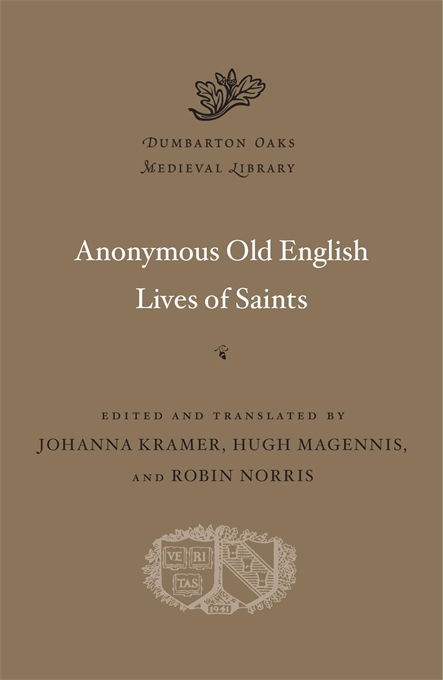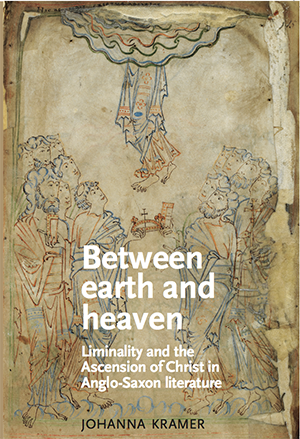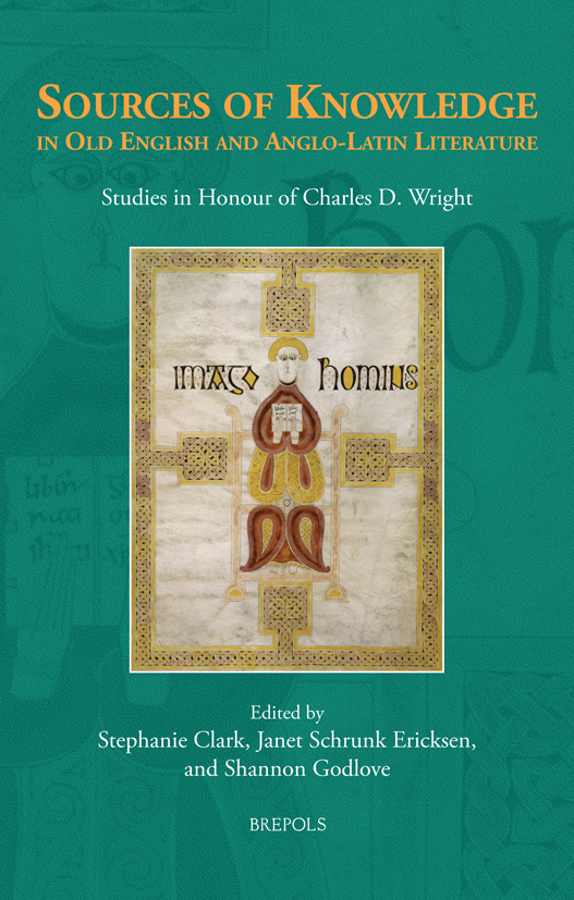Johanna Kramer
PhD Medieval Studies, Cornell University, 2006
MA Medieval Studies, Cornell University, 2002
MA English, Oregon State University, 1998
BA English, Oregon State University, 1995
Office Hours: Spring 2026: Tuesday 2-3 p.m. (Zoom only); Friday 3-4 p.m. (Zoom only); and by appointment.
Areas of Research and Teaching: Old English language and literature; Anglo-Latin literature; medieval religious literature, esp. early medieval hagiography and homilies; folklore and popular religion; prose writings; proverb studies; history of the English language; history and culture of early medieval England; Germanic languages and literatures
Johanna Kramer (she/her) is interested in all things early medieval, but particularly in Old English religious literature, with a research focus on saints' lives, homilies, expressions of Christian (especially patristic) theology, religious practices, and folklore. Ongoing interests are the influence of patristic theology on later writings, the history of ideas, the intersections of diverse literary cultures, and the interaction of genres within single texts.
Her current book project, expanding beyond the early Middle Ages, examines the use of proverbs and other proverbial materials in Chaucer's Canterbury Tales. The examination of this particular microgenre also demonstrates an innovative critical methodology by showing that critically reading texts through the lens of the specific genre of proverbs can variously attend to both long-standing critical questions and pressing current issues in literary criticism. From this book project, she has published an article on proverbs in the Squire Tale.
Her most recent book publication, a collaborative edition and translation of anonymous Old English prose saints’ lives, appeared in the Dumbarton Oaks Medieval Library series: Johanna Kramer, Hugh Magennis, and Robin Norris, eds. and trans., Anonymous Old English Lives of Saints, Dumbarton Oaks Medieval Library 63 (Harvard University Press, 2020).
Her first monograph, Between Earth and Heaven: Liminality and the Ascension of Christ in Anglo-Saxon Literature (Manchester UP, 2014; paperback 2017), examines how concepts of space, boundaries, and liminality are employed by early medieval authors to teach the theology of the Ascension in a wide range of Old English and Anglo-Latin texts. Between Earth and Heaven won the 2016 Best First Book Prize from the Southeastern Medieval Association (SEMA). To learn more about the book and Professor Kramer's research, see this article and video presentation in MU's Illumination Magazine.
At MU, Professor Kramer is a member of the lively and active field of Medieval and Renaissance Studies (MARS); to learn more about MARS, including the undergraduate and graduate minors, click here.
As part of her interest in source study, she has been supporting the long-term project Sources of Old English and Anglo-Latin Literary Culture (SOEALLC), which aims to produce a comprehensive and descriptive list of all authors known in Britain between ca. 500 and 1100 C.E.
Professor Kramer received her Ph.D. in Medieval Studies from Cornell University and has also studied at the University of Munich in Germany, the University of East Anglia (Norwich, UK), and Oregon State University (B.A. and M.A. English).
Besides rummaging through dead languages, she enjoys collecting sands and eating German (especially Swabian) foods.
NEH Summer Stipend, 2025.
Bentzinger Faculty Fellowship, Department of English, 2024-25
Provost Research Leave, University of Missouri, 2023-24
Research Council Grant, University of Missouri, 2023-24
SEC Faculty Travel Grant, 2023-24, 2022-23, 2016-17
Davidson Faculty Fellow, Department of English, 2020-21
Susan Kircher Faculty Fellow, Department of English, 2018-19
Dumbarton Oaks Library Short-Term Residential Fellowship, Spring 2016
Research Board Grant, University of Missouri, 2016
Large Grant and Summer Research Fellowship, Research Council, University of Missouri, Summer/Fall 2015
Research Leave, Research Council, University of Missouri, 2015-16
Faculty International Travel Grant, University of Missouri, 2009
Research Board Grant, University of Missouri, 2008-09
EGSA Outstanding Graduate Faculty Award, 2008
Summer Research Fellowship, Research Council, University of Missouri, Summer 2007
Center for Arts and Humanities Travel Grant, University of Missouri, 2006
Andrew W. Mellon Fellowship at the Society for the Humanities at Cornell University, 2004-05

Johanna Kramer, Hugh Magennis, and Robin Norris, eds. and trans., Anonymous Old English Lives of Saints, Dumbarton Oaks Medieval Library 63 (Harvard University Press, 2020).

Between Earth and Heaven: Liminality and the Ascension of Christ in Anglo-Saxon Literature (Manchester, UK: Manchester University Press, 2014; paperback 2017).

“Reading Lyric I of the Old English Advent Lyrics as Form-of-Life.” Sources of Knowledge in Old English and Anglo-Latin Literature: Studies in Honour of Charles D. Wright, ed. Stephanie Clark, Janet Schrunk Ericksen, and Shannon Godlove, Studies in Old English Literature (SOEL) 2 (Turnhout: Brepols, 2023), 69-96.
"Proverbial Wisdom and the Pursuit of Knowledge in the Squire’s Tale," The Chaucer Review 57.1 (2022): 68-100. DOI: https://doi.org/10.5325/chaucerrev.57.1.0068
“Ruthwell Cross,” Plates 2.54-55 in Vetusta Monumenta, ed. Katharina Boehm, Noah Heringman, and Crystal B. Lake. A peer-reviewed digital edition published under the auspices of the National Endowment for the Humanities and the Society of Antiquaries of London. 2021. 6400 words.
"Mapping the Anglo-Saxon Intellectual Landscape: The Old English Maxims I and Terence's Proverb ‘Quot homines, tot sententiae,’" Anglia: Zeitschrift für Englische Philologie 128 (Oct. 2010): 48-74.
"The Study of Proverbs in Anglo-Saxon Literature: Recent Scholarship, Resources for Research, and the Future of the Field," Literature Compass 6.1 (2009): 71-96.
"'Falsett no feit hes'—A Proverb in William Dunbar's 'In vice most vicius he excellis,'" English Studies 89.3 (June 2008): 263-72.
"'Ðu eart se weallstan': Architectural Metaphor and Christological Imagery in the Old English Christ I and the Book of Kells," Source of Wisdom: Old English and Early Medeival Latin Studies in Honour of Thomas D. Hill, ed. Charles D. Wright, Frederick M. Biggs, and Thomas N. Hall (U of Toronto P, 2007), 90-112.
